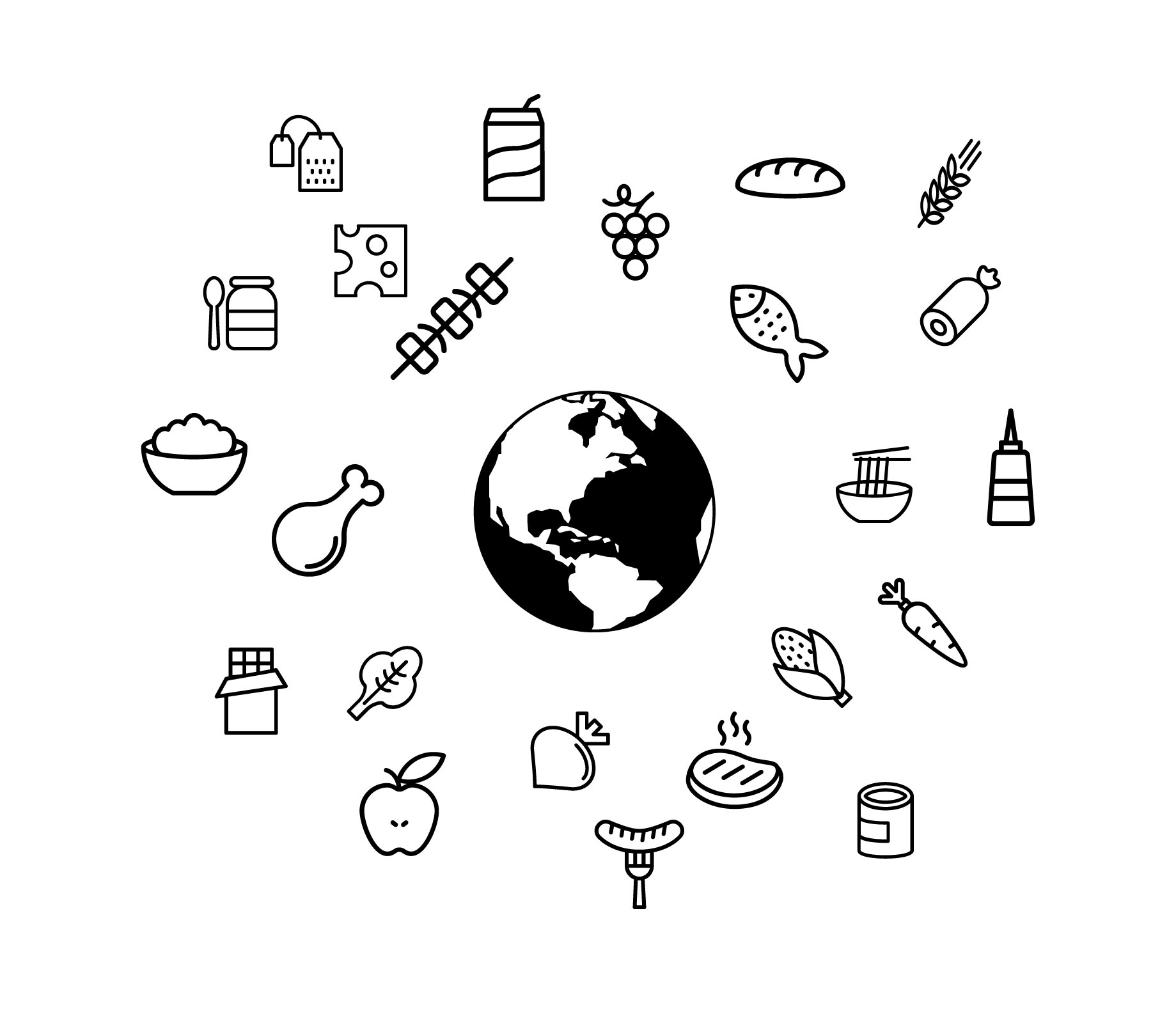Country of Origin
Many of the food products sold and consumed in Canada are produced around the world, which is illustrated in Figure 2.7.

If a food product is imported from another country, its country of origin must be on the label. See Film Clip 2.1 of Dr. Lisa Seto Nielsen, a registered nurse, speaking about assumptions concerning food that is produced outside of Canada.
Film Clip 2.1: Dr. Lisa Seto Nielsen speaking about assumptions concerning food that is produced outside of Canada
If products are produced in Canada, they must include the name and address of the responsible company. Food products that say “Product of Canada” must follow specific guidelines. For example, a Product of Canada item must have most (generally 98%) of its food, processes, and labour originating in Canada. This means that Product of Canada foods were grown or raised by Canadian farmers and are prepared and packaged by Canadian food companies.
The claim “Made in Canada” means that the manufacturing or processing of the food occurred in Canada. A claim can be made on a label if the last substantial step in processing a product occurred in Canada, regardless of whether the ingredients are domestic or imported. For example, the processing of cheese, dough, sauce, and other ingredients to create a pizza would be considered a substantial step. If the food product contains some food grown by Canadian farmers, it can use the claim “Made in Canada” with domestic and imported ingredients. If all of the ingredients have been imported, it can use the claim “Made in Canada” from imported ingredients.
Attribution statement
Unless otherwise noted, content from this page was modified and adapted from Nutrition and Labelling for the Canadian Baker by go2HR, which is licensed under a Creative Commons Attribution 4.0 International License.

